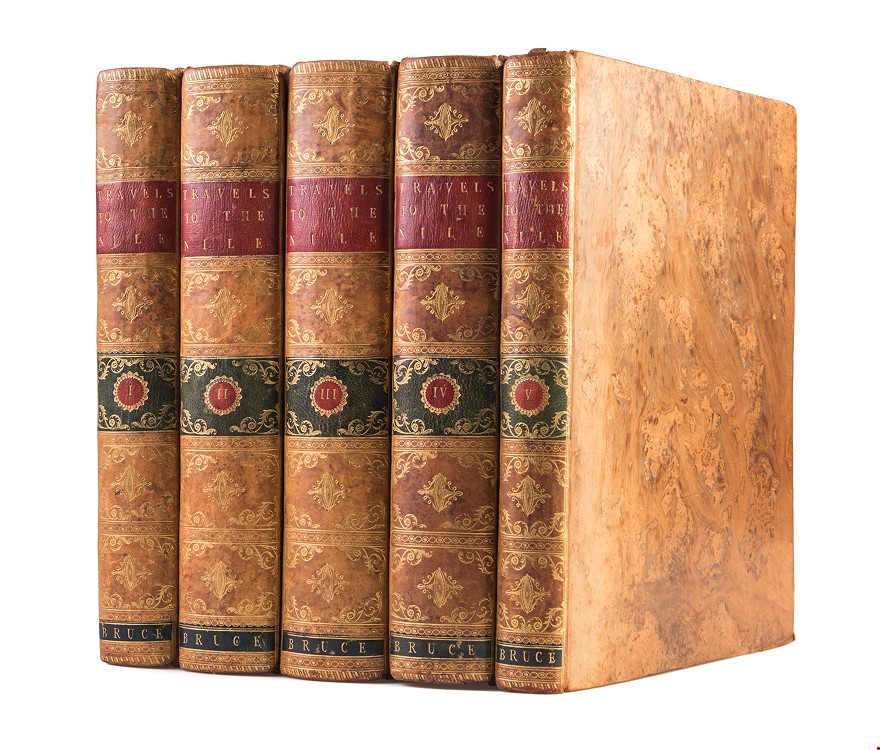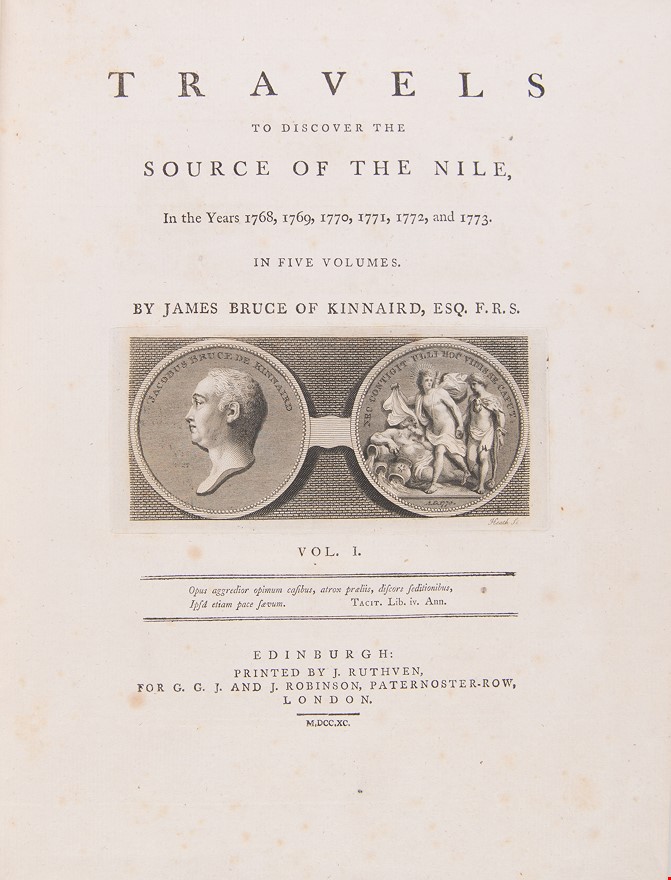Travels to Discover the Source of the Nile in the Years 1768, 1769, 1770, 1771, 1772, and 1773.
BRUCE James, of Kinnaird (1790.)
£8500.00 [First Edition]
Please contact us in advance if you would like to view this book at our Curzon Street shop.
BEAUTIFUL CONTEMPORARY CALF
First edition. 5 vols. 3 large folding maps & 58 plates (including 43 natural history specimens in vol. V), with 3 explanatory leaves for battle plans in vol. III. 4to. A handsome copy in contemporary mottled calf, elaborately gilt, with red and green morocco labels to spines, extremities very slightly rubbed. [x], lxxxiii, 535; [ii], viii, 718; [ii], viii, 759; [ii], viii, 695; [ii], xiv, 230, [12]pp. Edinburgh, Pr. by J. Ruthven,
Following Harrow, an unfinished law degree, and a brief marriage, Bruce travelled to Spain where for a short time he studied Arabic. On his return to England he came to the notice of Lord Halifax who offered him the position of consulate at Algiers, a post which required a great deal of courage and diplomacy. Since part of his remit was to survey the ancient monuments not delineated by Shaw, Bruce spent some time in Italy before travelling to Algiers in 1763.
His time in Algiers was troubled by the erratic behaviour of the Dey, whose actions finally caused Bruce’s resignation in 1765. The archaeological tour which he subsequently made along the Barbary Coast, prompted his trip in 1768 to Egypt, and began the journey narrated in these volumes. In that year he travelled up the Nile as far as Aswan, visiting the ruins at Luxor and Karnak, before sailing down the Red Sea, arriving in Abyssinia in the following year. It was from here that he made his various expeditions to what he considered to be the source of the Blue Nile (it was in fact merely one of its great tributaries).
Whilst in Abyssinia he claims to have been made a district governor (a fact later disputed by Henry Salt) and due to the unstable political climate his life was often in danger. However, by 1773 he was eager to return to England where he felt he would be amply rewarded for his African exploits. London society however found Bruce’s stories too vivid, and his manner awkward, prompting Fanny Burney to write: “Mr. Bruce’s grand air, gigantic height, and forbidding brow awed everybody into silence”. Despite the personal recognition of the King, Bruce did not gain the title which he felt should have been his. Sorely disappointed, he retired to his newly enriched Scottish estate, where following the death of his second wife, he dictated this narrative.
Ibrahim-Hilmy, 91; Nissin ZBI, 617; Blackmer, 221.
Stock Code: 229142





